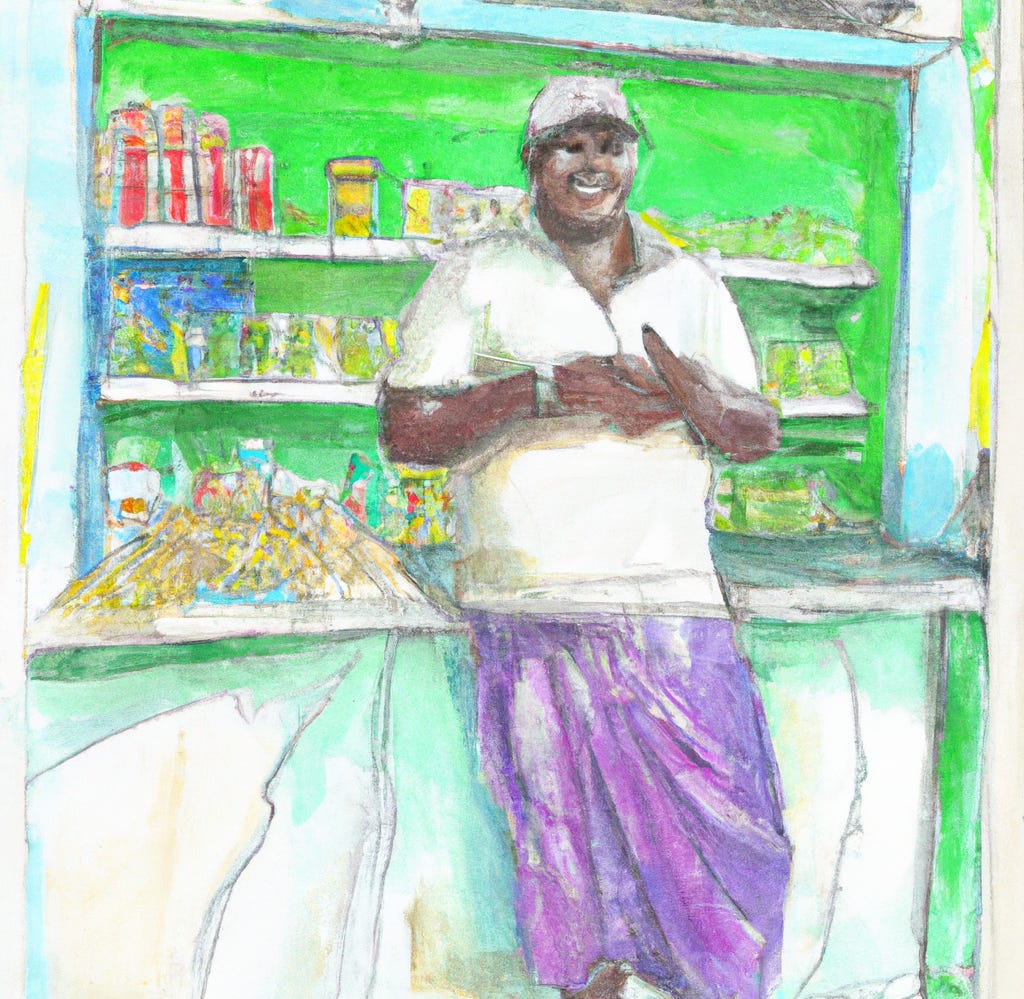Everything is a Database Waiting to Happen
Finding what we need is a game of logistics. And software will always win that game.
Have you ever tried to find something locally and online search just didn’t cut it?
I was looking for a bottle of contact lens solution in a small town in Sri Lanka. Naturally, I turned to ye’ old faithful, Google Maps, and searched for the most logical solution: a pharmacy. Turns out there was only one in the entire town.
When I arrived, I played a game of charades with the shop owner, pointing to my eyes and squirting an imaginary bottle. I wasn’t entirely sure he knew what I wanted. But whatever he thought I wanted, he didn’t have it.
He said “come” and beckoned me out the door. I followed him down a maze of random alleyways until we arrived at what I presumed to be his friend’s store.
The two started chatting. His friend shuffled through some baskets before pulling out a box of eye drops. Close, but not quite right. At least now I knew we were in the right ballpark. He murmured in foreign tongue and pointed off into the distance. I left with my personal retail escort and landed at another store. As with the previous store, this was nowhere to be found on any maps app.
After some light bantering, the clerk pulls something from the shelf and shows it to me, as if to say “This?”
“Yes—THAT!”
All three of us hoorayed in a vocal celebration of success.
In the Information Age, anything that doesn’t exist online is at risk of waste and inefficiency. Follow the breadcrumbs and they all lead to one place: digitization.
When physical things are digitized, they get cheaper, faster, and more accessible. Which is why we’ve been playing a big game of whack a mole with our physical world for the past twenty years. An opportunity to go from physical to digital arises and, wielding technology as the hammer, we smash it with the weight of business models, apps, and VC funding.
On this trajectory, every item on every shelf in every store on every street will eventually be logged somewhere in the cloud.
Every ingredient in every meal you eat will be traceable to the farm it was harvested on, and linked back to the company who sold the seed to the farmer.
Here’s the implication: everything is a database waiting to happen.
When UPS wanted to charge me $20 for a book of stamps, I walked next door to the grocery store and bought those same stamps for $11. Had I not known that [[grocery stores]] [[sell]] [[stamps]], I would’ve paid nearly twice as much for no added value.
There’s no tool that exists right now that allows me to search “stamps” and get results that are as good as my local knowledge. Like my personal retail escort who knew the right person, who knew the right place, local knowledge is bridging the gap between our physical and digital worlds for the time being.
But once the right information makes it into the right tools, everything gets easier.
Finding, buying, selling, and using physical things is a matter of data and logistics. And software beats humans at both 8 days a week. The more digitized our world becomes, the more efficient we become. And we humans just love efficiency, which means today is the stoniest stone age of the rest of our lives.
Pretty soon, logistical transactions will be left to AI-powered searches driven by natural language.
A 2-hour quest to find contact lens solution in a foreign town will become a voice prompt to my sunglasses. And a search for stamps will be as easy as sending a text.
The more our physical world exists online, the less we’ll need to rely on local knowledge. You won’t need to have the right information because your technology will have it for you—and it’ll do a lot better job at using it.
You may miss out on chance encounters with strangers but you’ll gain an omniscient BFFL that fulfills your every need with a swipe of a finger.
Wouldn’t it be nice to understand the economic implications of the products you buy? Or the environmental impact of each item you toss in the garbage? Or to see your personal energy consumption every time you turn on the lights or run a hot shower?
Software’s been eating the world for twenty years and it’s only just finished the appetizers. The kitchen was built in the 20th century, and the table was only set in the early 2000s.
But the main course has yet to be served.


Loooved this essay! The story, the metaphor, the humour, the storytelling. Excellent work!